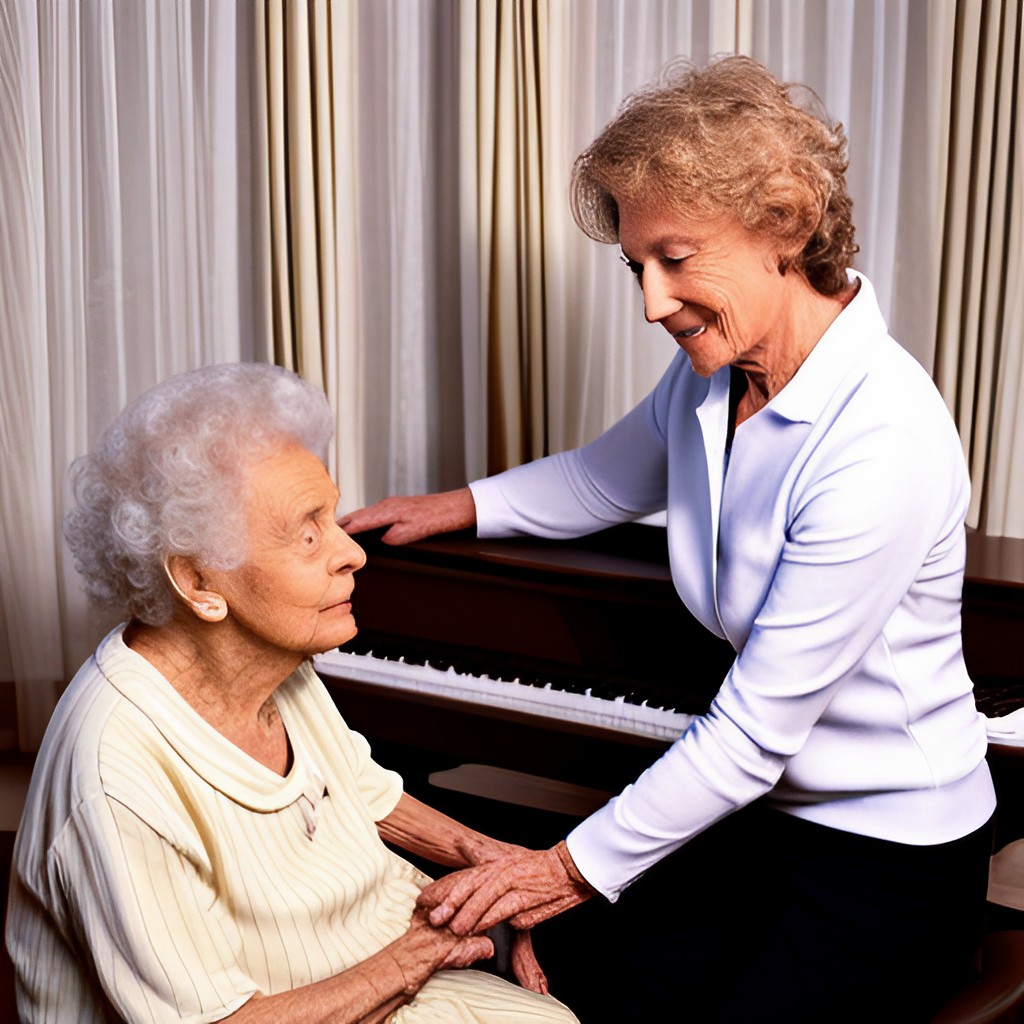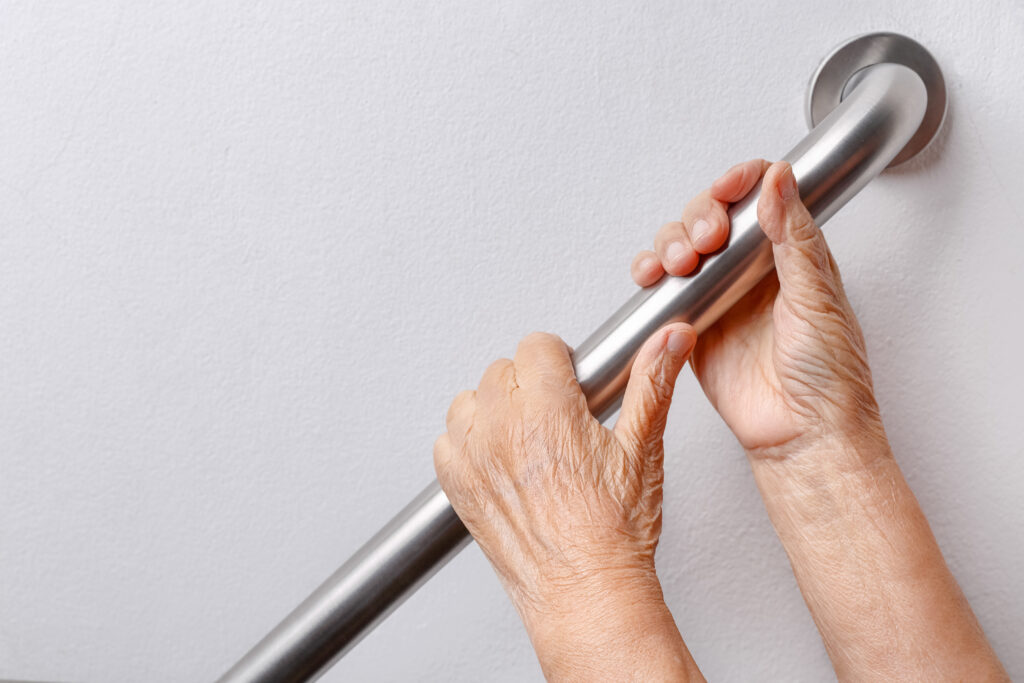Unlike some other forms of dementia, Alzheimer’s Disease is a progressive brain disease that affects millions of people around the world. If you’re reading this, it’s likely that you or someone you care about has been diagnosed with Alzheimer’s or another form of dementia. Caring for a loved one with dementia can be overwhelming, and it’s normal to feel anxious or uncertain about how you can best help them. But you don’t have to do it alone. In this blog post, we’ll discuss some tips and strategies for caring for a loved one with Alzheimer’s so that you can be as informed and compassionate a caregiver as possible.

Caring for a loved one with Alzheimer’s disease or other forms of dementia can be one of the most challenging tasks a person can face. It is not only physically but also emotionally and financially exhausting. It is, however, still a rewarding and fulfilling role that you are taking on, and with the right information, it is possible to make a significant difference in the lives of both the person suffering from dementia and yourself.
For adult children of aging parents or spouses of someone with dementia, the experience can be a roller coaster of unpredictable behaviors, memory loss, and confusion. However, with the right tools, strategies, and support network, caring for someone with Alzheimer’s or any another form of dementia can be rewarding, fulfilling, and life changing.
- Learn about the disease: Educating yourself about Alzheimer’s Disease is one of the most important things you can do as a caregiver. Understanding the stages of the disease, common symptoms, and potential challenges can help you anticipate your loved one’s needs and make informed decisions about their care. You can find reliable information about Alzheimer’s Disease online or from organizations like the Alzheimer’s Association.

Knowing the ins and outs of the disease will help you understand the symptoms, how it progresses, and the best ways to manage the condition. Being informed about dementia can also help you understand what changes your loved one may experience and how to respond to them. You can learn about the disease by reading articles, books, attending workshops or support groups. The more knowledge you have about dementia, the better equipped you’ll be to care for your loved one.
Being well-informed about dementia can help reduce stress, fear, and anxiety as you learn how to handle each stage of your loved one’s dementia journey.
- Build a support network: Caring for a loved one with dementia can be isolating, but reaching out for help is crucial for your own well-being and the well-being of your loved one. Consider joining a support group for dementia caregivers or connecting with local resources like respite care, meal delivery, or home health services. You might also ask family and friends for help with caregiving duties or emotional support.
Here is where a Nurse Advocate can come in handy. We can provide education and assist you in making educated and well-informed decisions. We can assist in identifying and choosing resources such as home health, or companion care, or meal delivery. We can help to educate you on treatment plan choices and work with your doctor and healthcare team to provide the best possible care for your loved one. We can also help you build a support team to assist you in caring for your loved one.
A Nurse Advocate can also assist in another way. With our clients we help set up a program called “Share the Care” to help build that Support Team.
Taking care of a loved one with dementia can be overwhelming; no one can do it alone. Additionally, there are support groups and care organizations available that can help offer assistance and respite care for caregivers. There is no shame in asking for help; it takes a village to care for someone with dementia.

- Create a Safe Environment
As dementia progresses, your loved one may become disoriented, confused, and forgetful. Therefore, it’s important to create a safe and secure home environment. This may include limiting access to dangerous areas, such as stairs. You may also opt to install locks on your cabinets and drawers to discourage your loved one from reaching objects that could be dangerous. Consider installing handrails, grab bars, and other accessibility tools to make mobility easier. Additionally, make sure to keep your loved one’s living area clutter-free.
One of our clients struggled so much with changes in behavior, attempting to eat and drink things that were not appropriate, and experienced severe paranoia. Sometimes she could remember her husband other times she thought he was a dangerous man in her home. Her husband asked us to promise him one thing. Our promise was to keep her home with him. No nursing homes. We knew this was going to be a difficult task but with a leap of faith we accepted the challenge.
As behaviors changed and worsened, we had locks put on the windows, top of doors, locks on the cabinets and locked up all cleaning fluids and other hazardous items that could be ingested including soap and shampoo. Her husband went to bed with her at night with a flashlight lit and under the covers in case she got up and he needed to see what she was doing. Over time we needed 24-hour care set up for the family in their home. When behaviors escalated, we turned to what comforted her the most. Her faith. Sometimes you just have to give them a hug and gently and quietly say they are going to be o.k. You won’t let anything happen to them. We would read from the Bible, and she would calm quickly. She always had Bible study in her home for many years but as she lost her memory she stopped going to church. She couldn’t bear the thought of not remembering the names of her friends she had known for many years.

- Create a routine:
Establishing a regular routine can help your loved one feel more comfortable and secure. This might mean scheduling meals, activities, and rest periods at consistent times each day. Keeping a daily schedule or using visual aids like picture boards or calendars can also help your loved one stay oriented and reduce confusion or anxiety.
Routines can help reduce confusion and provide a sense of familiarity. Establish a regular schedule for meals, napping, bathing, and other activities. Involve your loved one in decision-making and planning. Make the schedule visible and easy to follow, such as using signs, notes, or pictures. Having a daily routine can help decrease the feelings of anxiety and confusion that often accompany dementia.
- Simplify the environment:
People with dementia can become overwhelmed by clutter or too much stimulation. Simplifying your loved one’s environment can help reduce stress and improve their ability to function. This might mean decluttering their living space, minimizing noise, or removing distractions like televisions or other electronic devices.
- Be patient and kind:
Caring for a loved one with dementia requires a lot of patience and understanding. Remember that your loved one is not intentionally being difficult or forgetful. They may be experiencing frustration, fear, or other difficult emotions, and it’s important to respond with kindness and empathy. Try to focus on their strengths and interests and incorporate these into their daily routine.

By Teri Hofford Adobe Stock Photos
- Manage Symptoms of Dementia
Dementia symptoms vary, but most include memory loss, irritability, confusion, and changes in behavior. One helpful way to approach these symptoms is to prioritize what is most important to a person with dementia. For example, keep important items in an accessible place, provide visual reminders of tasks, and make sure the person is taking their medication as prescribed.
Develop a Care Plan. Creating a comprehensive care plan can make the journey of caring for someone with dementia much smoother. It can help you and family members understand each other’s expectations, share caregiving responsibilities, and provide guidance for medical care and financial concerns. Consult with healthcare professionals and attorneys to ensure the plan is suitable.
- Take Care of Yourself
Caring for a loved one with dementia can be emotionally and physically draining, and it is critical to take care of yourself. Exercise regularly, eat a balanced diet, and get enough rest, all of which will help you stay healthy and cope with the stress that comes with caregiving. Additionally, taking time for yourself to participate in activities you enjoy, even if only for a brief moment, can benefit you and your loved one. Don’t hesitate to get some respite care now and then to give yourself a break. We will include our past blog post on Respite Care to give you more information on that important topic for caring for yourself!
Dementia caregiving is a demanding job, and it’s essential to take care of yourself. You can’t care for your loved one if you’re not well-rested, healthy, and emotionally stable. Make time for yourself and prioritize your self-care needs. Take breaks when you need them, and don’t be afraid to ask for help. Reach out to family members, friends, neighbors, or community resources. Focus on activities that you enjoy and find relaxing, such as reading, exercising, or listening to music. Taking care of yourself will help you stay energized and focused on your caregiving task.

Joining a support group can help you meet other caregivers, learn new strategies, and share your experiences. There is nothing like being around a group of people going through the same issues you are facing. They really understand. They are living it too.
Conclusion:
In conclusion, caring for a loved one with dementia can be rewarding, but also challenging. It can take a physical, emotional, and psychological toll, but with the right tools, strategies, and support, it’s possible to provide excellent care and maintain your well-being. Remember, taking action is crucial, and reaching out for help is a sign of strength. Caring for someone with dementia is not a journey you have to take alone, and there are resources available to help make the experience more manageable and rewarding. A nurse advocate can come along side you and assist in putting the plan in place to manage your loved one with dementia. This can give you peace of mind knowing you are not alone on this journey and an expert is helping you to get the best care possible for your loved one.
Thanks for stopping by and we hope you have gained some insight to caring for a loved one with dementia.
Consider learning more and reaching out to our healthcare professionals in our directory Patient Advocate Match. We strive to “Match the Right Healthcare Resources for the Right Reasons”.
Check out our Directory Listing: “Dementia Care Solutions“ on our website:
Take care and we will see you back here soon,
Pam
Patient Advocate Match-“Matching the Right Healthcare Resources for the Right Reasons-Free”


